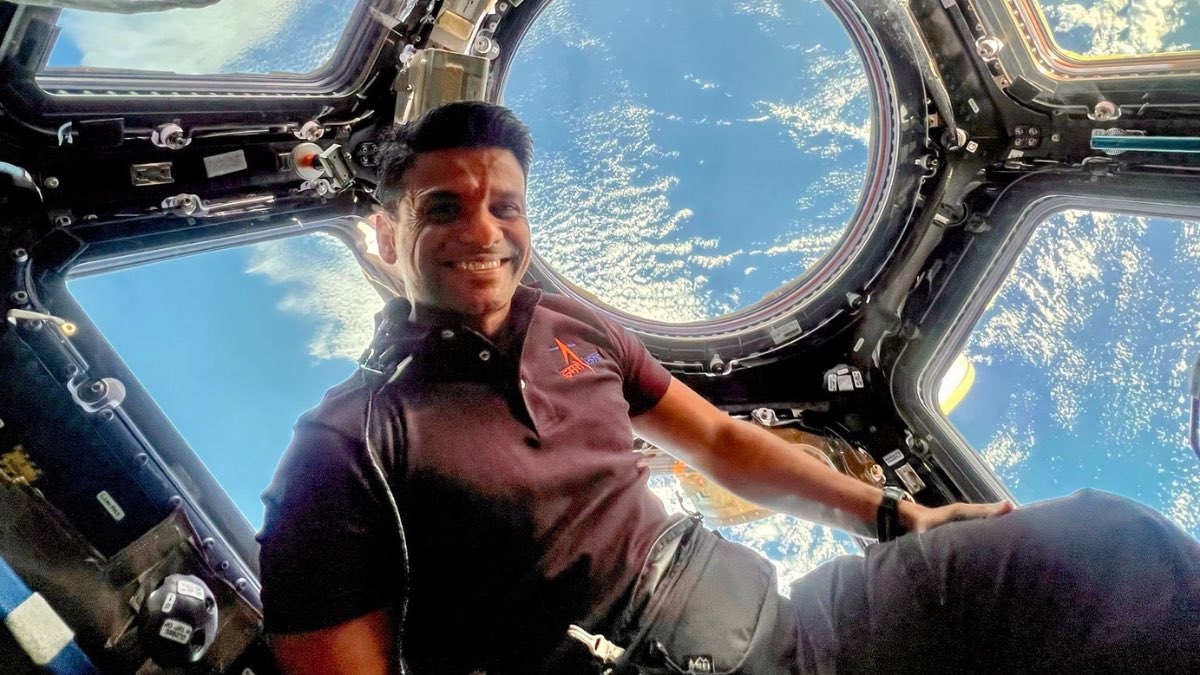How India Aims to Turn Its Space Sector Into a Launchpad for Innovation, Industry and Global Leadership
India marked National Space Day 2025 with a clear-cut vision for the country’s next phase of advancement in space exploration, innovation, and private sector participation.
In a video address delivered on August 23, Prime Minister Narendra Modi outlined India’s achievements, aspirations, and reform trajectory in the space domain -- framing it as a national mission with global ambitions.
 |
| Image Source: Thomas Pesquet |
He congratulated scientists, engineers, and young innovators across the country for their growing contributions to India's space capabilities.
In a strong signal of India’s emerging leadership, PM Modi cited India’s recent hosting of the International Olympiad on Astronomy and Astrophysics, where over 300 students from 60 countries participated, with Indian youth winning top honours.
He also lauded ISRO-led outreach efforts like the Indian Space Hackathon and Robotics Challenge, designed to spur innovation among students.
Highlighting key recent milestones, the Prime Minister recalled India’s historic achievement as the first nation to land on the Moon’s South Pole.
He also underscored India’s growing technical capabilities, noting that the country is now the fourth in the world to demonstrate space docking and undocking operations.
Greetings on National Space Day! India's journey in space reflects our determination, innovation and the brilliance of our scientists pushing boundaries. https://t.co/2XPktf49Ao
— Narendra Modi (@narendramodi) August 23, 2025
He praised Group Captain Shubhanshu Shukla, who recently unfurled the Indian flag aboard the International Space Station, calling it a moment that reflected “the courage and infinite dreams of New India.”
PM Modi invited young Indians to join the newly forming Astronaut Pool, part of a broader push to develop human spaceflight capacity under the upcoming Gaganyaan mission.
Looking ahead, the Prime Minister affirmed that India is advancing rapidly in semi-cryogenic propulsion and electric engine technology and is preparing to launch its own space station in the coming years.
“Beyond galaxies lies our horizon,” he said, urging India to deepen its research into space’s most complex mysteries.
PM Modi positioned space reforms as central to India’s transformation over the past decade. From opening up the sector to private investment to liberalising spectrum access and easing FDI rules, the country has enacted a series of structural changes to unlock new growth.
As a result, over 350 space-tech startups have emerged, many participating in new missions and platform development.
He announced that India’s first privately built PSLV rocket is nearing launch, as is the first Indian private-sector communication satellite.
A new constellation of Earth observation satellites is also in development via public-private partnerships.
Turning to the future, PM Modi challenged the private sector to scale dramatically. “Can we aim to create five unicorns in the space sector in five years?” he asked.
“Today, we carry out five or six launches annually. I invite you to scale this to 50 rockets a year -- one every week.” He assured the government’s full backing through next-generation reforms.
Emphasising the wider utility of space for governance and public services, he noted how satellite data is used for crop insurance, fishing safety, disaster response, and infrastructure planning under PM Gati Shakti.
He urged space-tech firms to develop further citizen-focused innovations.
Finally, the Prime Minister reaffirmed that space for India is not just a domain of scientific inquiry but a tool for empowering lives and building national capability.
“India’s journey into space will touch new heights,” he said. “No milestone is the final destination.”
